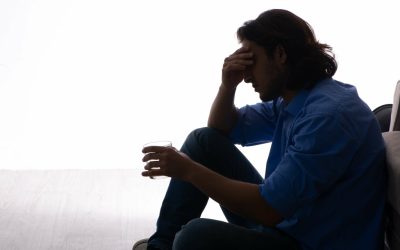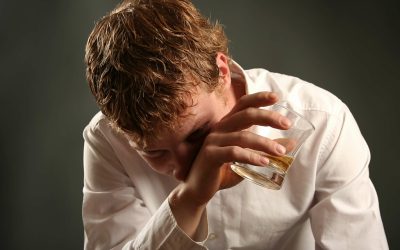Your daily habits and environment can significantly impact the quality of your sleep. Take the Sleep Quiz to help inform your sleep improvement journey. Dr. Singh is the Medical Director of the Indiana Sleep Center. His research and clinical practice focuses on the entire myriad of sleep disorders.

Heart rate increase
For instance, many doctors believe cognitive behavioral therapy for insomnia is a fantastic tool. This process helps you to change your sleep habits, which could include cutting down on alcohol too close to bedtime. If you find you’re struggling with sleep, and you can’t sleep without alcohol, you may want to consider some additional treatments for insomnia. Though we know alcohol isn’t a great way to get to sleep long-term, it can feel like a good choice when you’re struggling with insomnia.
Practical Tips to Deal with Insomnia After Quitting Alcohol
RISE users even say stress and anxiety are their biggest challenges when it comes to getting a good night’s sleep. RISE can tell you when to do 20+ sleep hygiene habits at the right time for your body clock to make them even more effective. Benzodiazepines may help sleep problems during withdrawal, which can help you avoid relapse. But they may not be prescribed beyond this as there’s a risk of side effects like withdrawal, rebound insomnia, addiction, and overdose when mixed with alcohol. They can also suggest the best ways to manage withdrawal symptoms, which can include sweating, anxiety, vomiting, and tremors — all of which can impact sleep.
How to use magnesium for sleep: Magnesium oil for sleep
Almost one-quarter of respondents say they sleep better if they stop drinking 3-4 hours before bedtime, and 23% say the same if they stop drinking 1-2 hours before bed. About 40% say they notice an impact on their sleep after 3-4 drinks. More than 70% of those with alcohol use disorder (AUD) also experience alcohol-induced sleep disorders, such as insomnia, according to scientists in a 2020 review. Regular drinking has also been linked to shorter periods of rapid eye movement (REM) sleep, a disrupted circadian rhythm, and snoring.
How we reviewed this article:
That’s something Akshay Bhavsar, a 34-year-old resident of Irvine, California, notices. Even after a moderate number of drinks, the pharmaceutical project manager says he would wake 4-5 times per night, sometimes struggling to go back to sleep. Working on your sleep hygiene is another way to help prevent or reduce insomnia. These are changes can’t sleep without alcohol you can make to your environment and routine to help promote sleep. This type of behavioral therapy works to improve your sleep efficiency, or the time you spend asleep divided by the time you spend in bed. Insomnia is also common among people who have an alcohol use disorder, but the problem can persist or even begin during recovery.
Remedy #2: Magnesium and Epsom Salt Baths

The other is that women have less of the enzyme that helps metabolize alcohol, so they can’t process alcohol as efficiently as men. According to a December 2023 survey by SleepFoundation.org, 75% of adults say they have — or have at least thought about — giving up alcohol for the month of January. Over 80% report trying to abstain from alcohol for a different month or period of time. By Buddy TBuddy T is a writer and founding member of the Online Al-Anon Outreach Committee with decades of experience writing about alcoholism.
Plant-Based Diet Lowers Risk of Obstructive Sleep Apnea
While medicine can help with sleep problems short-term, much like alcohol, it has various long-term side-effects. There are various complementary therapies available to ensure you don’t have to switch trouble sleeping without alcohol to issues sleeping without medication. Getting to sleep after you quit drink entirely can also be a challenging experience, though it gets easier with time. Don’t give up if you don’t notice any massive changes straight away. You might also find you need to continue using alcohol to sleep in small doses before you can taper off entirely.
A glass of wine with dinner seems harmless enough until you’re tossing and turning in bed later that night unable to sleep. Dealing with the temporary discomfort of insomnia can turn your health around in the long term, and ultimately, it can lead you to a more rested and healthier life. Support groups play an invaluable role in managing insomnia following alcohol cessation. These safe spaces offer emotional backing, shared experiences, coping strategies, and education about insomnia. Communicating with individuals experiencing similar issues can provide a sense of communal sharing, reducing feelings of isolation and promoting positivity. Remember, these are averages based on research and does not apply uniformly to every individual experiencing insomnia after quitting alcohol.
A lack of sleep can have a severe effect on mental health, making moods inconsistent, inducing depression and worsening anxiety. It can also take a large physical toll on the body, as it struggles to recover from the other withdrawal symptoms, due to not getting a sufficient amount of rest. When alcohol has been introduced to the sleep cycle, the functions of the brain are impeded, and the cycles become disrupted.
- You’re also more likely to wake up through the night, and experience fewer periods of deep sleep.
- Inpatient treatment involves living on-site at the detox or rehab facility, an approach that keeps patients in a healing environment and allows for better monitoring and treatment.
- People with sleep apnea are also prone to loud, disruptive snoring.
- Alcohol can help to reduce feelings of stress, and make you feel more comfortable drifting off into oblivion.
- This involves adopting habits and creating an environment that promote restful sleep.
Lack of REM sleep affects memory formation and leaves you feeling drowsy and exhausted the following morning. There are a variety of programs available for those wishing to undergo alcohol detox. These specialists in treatment for alcohol addiction will guide users through withdrawal effects with psychotherapy, group therapy, and medication. There are some ways to provide yourself with an alcohol insomnia cure.
While one-third say they fall asleep faster after drinking, they note it is restless overall. Such problems can persist for some time even after you decide to quit drinking. In fact, difficulty sleeping is one of the most common alcohol withdrawal symptoms and one that causes many to relapse.
